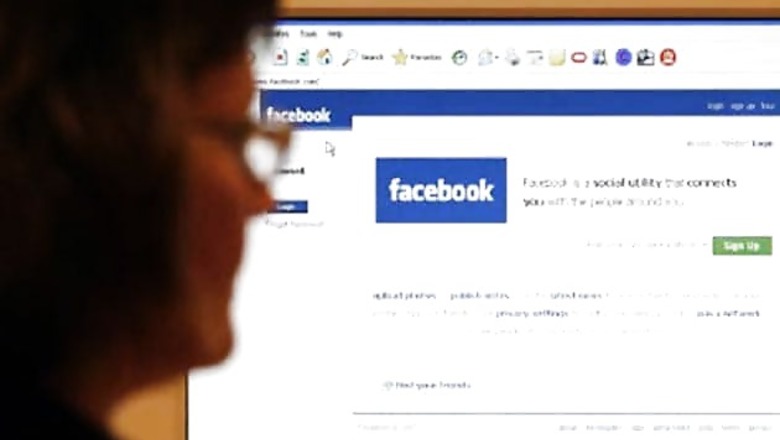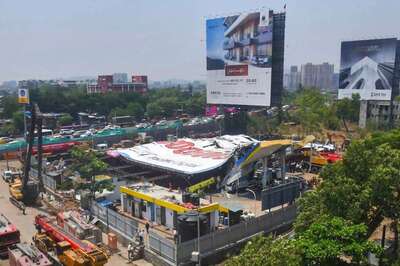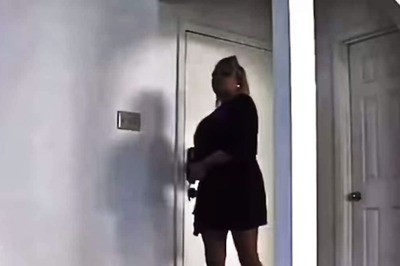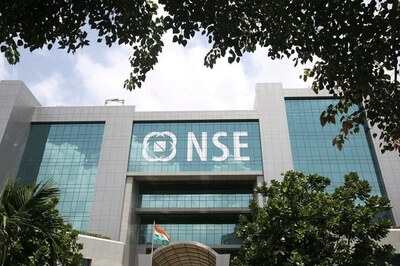
views
The Supreme Court has quashed the controversial Section 66A of the Information and Technology Act calling it unconstitutional and untenable. The section gave police the powers to arrest anyone for sending offensive messages from mobiles and computers with up to 3 years in jail. The court added that it interferes with freedom of speech and expression.
The Act has been in the news in recent times because of its alleged misuse. The first PIL on the issue was filed in 2012 by a law student Shreya Singhal, who sought amendment in Section 66A of the Act. This was filed after two girls - Shaheen Dhada and Rinu Srinivasan - were arrested in Palghar in Thane district as one of them posted a comment against the shutdown in Mumbai following Shiv Sena leader Bal Thackeray's death and the other 'liked' it.
There have been several cases wherein Section 66A of the Act were misused and appeals seeking an amendment have been demanded.
1. Jadavpur University professor Ambikesh Mahapatra was arrested for forwarding caricatures on Trinamool Congress chief Mamata Banerjee on Facebook in 2012.
2. Activist Aseem Trivedi was also arrested in 2012 for drawing cartoons of Parliament and the Constitution to depict their ineffectiveness. He was arrested on charges of sedition leading to huge protests.
3. In another instance in 2012, Air India employee Mayank Sharma and KV Rao from Mumbai were arrested for allegedly posting offensive comments against politicians on their Facebook group.
4. Businessman Ravi Srinivasan was also charged in 2012 by Puducherry Police for allegedly tweeting against Karti Chidambaram, son of then union minister P Chidambaram. he had allegedly called Karti 'corrupt' in his tweet.
5. In 2012, three youngsters from Kishtwar district - Kishori Sharma, Bansi Lal and Moti Lal Sharma - were arrested and sent to jail for 40 days after they were tagged in an allegedly blasphemous video posted on Facebook. One of them had commented on the post. They were charged with desecrating religious symbols and inciting communal hatred by using information technology.
6. A tourism officer in Varanasi was arrested for uploading "objectionable" pictures of Samajwadi Party chief Mulayam Singh Yadav, Uttar Pradesh Chief Minister Akhilesh Yadav and senior SP leader Azam Khan on Facebook.
7. In August 2013, poet and writer Kanwal Bharti was arrested by police for posting a message on Facebook that criticised the Uttar Pradesh government for suspending IAS officer Durga Shakti Nagpal, who had cracked down on the sand mafia. Bharti's post questioned why Nagpal had been suspended for ordering the demolition of a wall intended to be part of a mosque while no officer in Rampur was dismissed when an old madrassa was pulled down. He said the reason was because the town was controlled by Samajwadi Party leader Azam Khan.
8. In 2014, a young shipping professional Devu Chodankar was booked for a Facebook post on Prime Minister-elect Narendra Modi in which he said that would start a holocaust in India. Chodankar had written on a Facebook forum on Goa+, a popular forum with over 47,000 members, if elected to power, Modi would unleash a 'holocaust'. He deleted his post subsequently. Chodankar later apologised for his choice of words but stood by the sum of his argument, calling it his crusade against the "tyranny of fascists".
9. Police arrested CPI-M worker Rajeesh Kumar for posting "abusive" comments and photos on Facebook about Prime Minister Narendra Modi. Police said in one of the posts, Modi was depicted in a picture shown with an imprint of a shoe on his face. They claimed the posts had abusive comments against Modi and a comment in one post could have sparked communal tensions.
10. Recently, a class 11 student was arrested for making a Facebook post about UP minister Azam Khan. Khan had claimed that law is enforced with strictness and the boy was arrested within 24 hours. He later agreed to withdraw his statement and his parents offered an apology too.




















Comments
0 comment